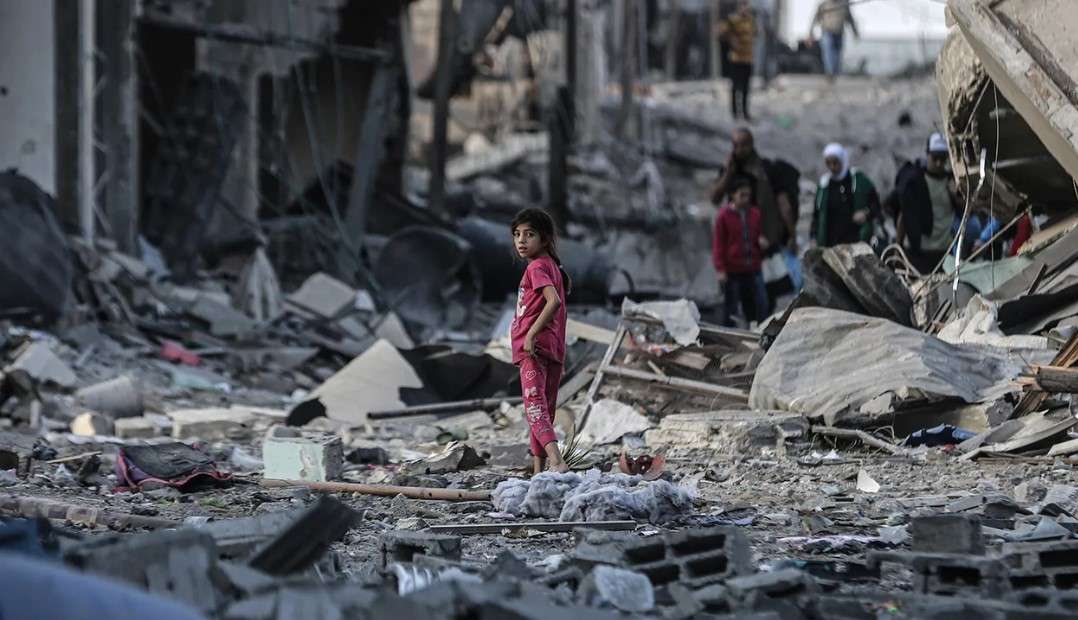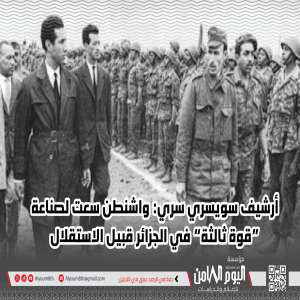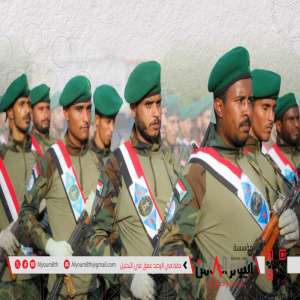The Preliminary Fallout of the War on Gaza
The War in the Context of Israel’s Domestic Political Rift
The perception that the war is existential, the desire for revenge, and the need to rebuild society’s self-confidence and trust in the army all have far-reaching implications.

Policies Toward Palestinian Citizens of Israel
On the morning of Saturday, October 7, the Islamic Resistance Movement (Hamas) launched a surprise attack on Israel, targeting a string of military and civilian sites along the perimeter of the Gaza Strip. The attack, which the group dubbed the “Al-Aqsa Flood,” was accompanied by intense rocket and shellfire from the Strip into Israel. In the first hours of the attack, Hamas killed and captured unprecedented numbers of Israeli soldiers and civilians. The attack shocked both Israel and the world. Media outlets labeled it Israel’s worst failure since the October 6 War of 1973. Amos Yadlin, former head of the IDF’s Military Intelligence Directorate, went as far as comparing it not with 1973, but with the war that accompanied the birth of Israel in 1948.1
On the same day of the military attack, Israeli Prime Minister Benjamin Netanyahu declared war, the first Israeli prime minister to do so since 1973, and announced the mobilization of 360,000 reserve soldiers. Netanyahu said that the war aimed to destroy the military and organizational capabilities of Hamas.2 Israeli leaders have since referred to the conflict as an “existential war” and “a war on the home front,” vowing to reject all calls for a ceasefire until the Palestinian organization is wiped out.
The perception that the war is existential, the desire for revenge, and the need to rebuild society’s self-confidence and trust in the army all have far-reaching implications. Judging by comments by Defense Minister Yoav Gallant, these are being used to justify Israel’s attack on Gaza and its people, and indicate that all constraints or checks on the army’s actions there have been lifted. These characterizations have also had political and security implications already, including the creation of an emergency government, the shelving of deep political divisions in Israel, stepped-up efforts to silence domestic criticism, the further militarization of Israeli society and the media, and the use of all available means to repress free speech and expression of any opinion that challenges the Israeli consensus, especially when it comes from Palestinian citizens of Israel.
In this atmosphere, as Israeli society mobilizes to support the war effort, its divisions have been put aside, albeit temporarily. However, when the war does end, there will be calls for accountability. The conflict flared amid deep political divisions in Israeli society which sees connections between the government’s plan to undermine the judiciary, the army being caught off guard, and divisions between the military and the executive branch. Moreover, many Israelis accuse Netanyahu and his government of direct responsibility for Israel’s failures from the very early hours of the war.
The War in the Context of Israel’s Domestic Political Rift
The war has come in a context unlike any other that Israel has experienced in its history, characterized by deep divisions in Israeli society, bitter differences between the military apparatus and the government, and a collapse of public trust in the government and its leader. Military and security officials reportedly warned Netanyahu in early August of the effects the country’s political rifts could have on the army’s preparedness for any potential conflict, voicing extreme concern over the lack of volunteers for reserve forces, and saying this was damaging the very core of the army’s capacities and training.3 During a private meeting, the chiefs of staff showed Netanyahu data on the lack of volunteer reservists, especially in the air force, and the resulting poor qualifications. They also discussed the degradation of Israel’s deterrence, especially vis-à-vis Hezbollah.4 The Military Intelligence agency Aman sent messages to Netanyahu regarding the controversial “judicial reform” plan, the last of which was just before the Knesset’s vote to curb the Supreme Court’s use of “reasonableness” as a check on government policy, and argued that the security implications would be felt both in the short term and into the future.5
In early August, during its flagship weekly news program, Israel’s Channel 12 showed a picture of Netanyahu, his defense minister and army chief, against a background showing their predecessors in 1973. This was clearly meant to compare the two periods, pre-emptively blaming Netanyahu for whatever failure was to come.6 Also in early August, Israeli national security expert Uri Bar-Yosef wrote in the daily newspaper Haaretz that if there were to be a war soon, Israelis would long for the Yom Kippur war, as the coming conflict would be the biggest and hardest since. He added that the capacities and combat-readiness of the army have changed since 1973, and have been degraded by Israel’s political divisions. Most importantly, he argued, the form and competence of the political leadership have deteriorated since the 1970s, and public faith in the Israeli leadership has plummeted.7
The Israeli government and its leader rejected or ignored all these warnings, insisting on pushing forward with the plan to undermine the judiciary. Israeli decision-makers were in total agreement that Hamas was completely deterred and would not dare launch any military action against Israel.
The Immediate Political Impact of the War
As Israel’s defenses around Gaza collapsed and Hamas’s forces invaded Israeli towns and military bases, the Israeli public’s morale also collapsed, as did its trust in the government, ministries, and state institutions. This was clear from Israeli media coverage across the board, expert commentary, and statements by average Israelis, especially residents of the south. All agreed that the Israeli state and its institutions had catastrophically failed to defend its citizens.
This was reflected in public opinion polls conducted after October 7. One such poll of Israeli Jews only, that was taken days after the beginning of the conflict and published on October 12, showed that 84 percent of respondents said they blamed the Israeli political leadership for the failure that led to the Hamas attack. Seventy-nine percent of Israelis who voted in the last election for the parties forming the current governing coalition believed the political leadership was responsible. Moreover, nearly all those polled—94 percent—said that Netanyahu’s government was to blame for the situation that led to the collapse of Israel’s defenses in the south.8
Another poll on the political and electoral fallout of the war, published on October 13, revealed that Netanyahu, his government, and the Likud Party would suffer major losses were elections to be held today. On the other hand, Benny Gantz National Unity, or State Camp, alliance has markedly grown in popularity. The poll showed that were elections to be held today, Likud’s share in the Knesset would drop from 36 to 19 seats, while Gantz’s coalition’s share would grow from 12 to 41.9
This atmosphere, combined with the need to raise public morale and prevent the fragmentation of Israeli society after a year of bitter political divisions, were major drivers in the formation of an emergency government to lead the war. The new government includes Benny Gantz and Gadi Eizenkot, the first a former defense minister and both former chiefs of the general staff. Netanyahu had his own, additional reasons for wanting to form an emergency government: preventing his administration from collapsing, attempting to absorb public anger and criticism, and having experienced military figures alongside him in the decision-making process. He also wanted to legitimize his decisions and future moves in the conflict, as Gantz and Eizenkot’s views are largely representative of the Israeli security apparatus. These views include support for a ground invasion of Gaza and concern of the potential opening up of a second front with Hezbollah on Israel’s northern border with Lebanon.
The creation of an emergency government was not hard. Israeli society has always unified in times of war and security crises, with the opposition standing side-by-side with the government and the army. This is exactly what happened during the first moments of this war. Opposition leader Yair Lapid announced his support for the government and the military, agreeing to enter a national unity government on the condition that it excluded the Religious Zionist Party of Finance Minister Bezalel Smotrich and the Jewish Power Party of National Security Minister Itamar Ben-Gvir. However, Netanyahu rejected these conditions.
Gantz, on the other hand, announced that he was willing to enter any emergency government without such preconditions, providing that he could take part in military and political decisions within a war cabinet, that the government would expire at the end of the war, and that all legislative processes not related to the war would be suspended for the same period. This meant that the government’s plan to constrain the judiciary could no longer move forward.10 Indeed, an emergency government was formed and approved by the Knesset on Thursday, October 12. It was agreed that the government would manage the war and continue working until it is declared over. This development also granted the government a moment of domestic political calm and military legitimacy, albeit temporary and conditional on the performance of the government and the army on the ground.
Protest Movements Back the War Effort
Unsurprisingly, the mobilization of Israeli society included not just volunteering for the reserve forces and support of opposition parties for the war, but also all kinds of actions where the role of the state and the government had retreated in recent years. Particularly notable was the role of the protest movements that had staged mass rallies throughout the year against Netanyahu’s government and in defense of “Jewish democracy.” These movements now moved to fill the gaps left by the government. They included army reservists, members of the security establishment, high-tech activists, the Kaplan Force, Brothers in Arms and the business community, as well as other civil society groups. All these groups joined the war effort and mobilized to help on the home front, particularly supporting the residents of the Gaza periphery who had fled to other parts of Israel,11 gathering donations and military supplies for the army,12 and collecting money to help pay for aircraft to bring back Israelis overseas, buy personal equipment for soldiers, and provide food and alternative housing to residents who had fled the south. In many cases, these efforts replaced the role of the state.
Indeed, this was another sign of the weakness of the government and state institutions—which had been undermined by Netanyahu’s neoliberal policies over the past decade—as well as evidence of Israel’s lack of preparedness for a sudden war of this scale. This led to severe criticism of the government in its handling of the civilian aspects of the crisis in addition its military failings.
Policies Toward Palestinian Citizens of Israel
Times of war always throw into sharp relief the differences between the Arab/Palestinian and Jewish communities in Israel, adding tensions that already exist between them. This tension has grown in recent years, particularly in 2021, when Palestinian citizens of Israel organized the Karama (“Dignity”) demonstrations against Israel’s “Operation Guardian of the Walls” attack on Gaza, incursions into the Al-Aqsa Mosque compound, and attempts to evict Palestinian residents from the Sheikh Jarrah district of Jerusalem. The reaction of the Israeli security apparatus at the time made it clear that all restrictions were now lifted on how it would deal with Palestinian citizens during times of crisis. This was even before one of the main inciters to violence against the Palestinians, Jewish Power’s Itamar Ben-Gvir, joined the government.
From the day he became Minister of National Security, he publicly made it clear that he believed his main task was to prevent any repeat of those events, and that he would deal with any protest with an iron fist. Ben-Gvir decided to set up National Guard units to deal with such incidents, especially in Israel’s mixed, historic coastal cities. He announced on many occasions that his main job was to deal with the danger posed by Palestinians in Israel.
From the first day of the Hamas attack, public figures were already inciting against Palestinians inside Israel. They included Netanyahu himself, who said in a speech that Israel faced four fronts: in the south, the West Bank, the north, and at home. He did not specify what the latter meant, but it was clear that he was alluding to Palestinian citizens of Israel. Ben-Gvir also announced that the police would buy 10,000 rifles and distribute them to so-called “protection units” in Israeli cities, while an officer was appointed to organize civilian “battle units” in Israeli towns.13
In addition to this incitement and fearmongering, the security apparatus launched a campaign of arrests against Palestinian citizens in order to prevent any protest in sympathy or support for Gaza, for acts as minor as publishing Quranic verses on social media. Police arrested thousands of people for posting tweets supporting Gaza, including influential social media users14 and public figures, such as Dr. Amer al-Hazil, mayoral candidate of Rahat, a predominantly Bedouin city in southern Israel.15 They also included artists such as singer Dalal Abu Amneh and actress Maisa Abd Elhadi, mosque imams and even members of medical staff at Israeli hospitals.16
Palestinian students at Israeli universities were also prosecuted, suspended, or expelled from their courses for social media posts opposing the war or expressing sympathy with the children of Gaza.17
By October 17, Israeli police had detained dozens of Palestinian citizens and arrested 30 others since the start of the war on Gaza.18 Palestinians were increasingly being threatened of losing their jobs on suspicion of solidarity with Hamas, to the point where some building sites would not allow Palestinians on site, only Jews and foreigners.19 Israel Police Commissioner Yaakov Shabtai openly threatened Arab citizens with deportation to Gaza if they voiced sympathy with its residents, saying: “whoever wants to show solidarity and support for Gaza is invited to get on the buses going there.” He added that the police would not allow demonstrations in support of Gaza, and would deal severely with any attempt to hold them.20
It is clear that the longer the war goes on, the more these attacks and repression against Palestinian citizens of Israel will escalate, as a form of revenge against Palestinians in general and an attempt to impose different rules on their political action, as determined by Zionist consensus.
Conclusion
Despite the huge military failure and the shockwave that rocked Israel on October 7, Israeli society has unified and mobilized behind the military effort. Israel has tried to crush domestic criticism and portray any sympathy with Gaza or opposition to the war as a hostile act of solidarity with the enemy during wartime.
Simultaneously, Israel has avoided asking any tough questions about the root causes of the situation: first and foremost, the occupation, the siege of Gaza, Israel’s strategy of marginalizing the Palestinian issue and rejection of any political solution, not to mention the great delusion that minor economic improvements to people’s daily lives can be an alternative to their national aspirations.
In other words, the doctrine of economic peace and the mentality of managing the conflict or reducing it to “economic calm” in the case of Gaza, whose proponents believe they can thus avoid the need for a comprehensive and just solution to the Palestinian question, is misguided. Yet this belief is shared by all of Israel’s political parties, not only Likud.
In the current environment in Israel, nobody has asked these questions: neither the media, nor commentators, nor politicians. Nobody is talking about anything except the need to use the maximum violence possible, without any limits. This is especially true as the world has given Israel a green light to respond to the Hamas attack however it sees fit; that is to say, by taking the security solution to the extreme, despite the fact that such a strategy has failed throughout the years of the Israeli-Palestinian conflict, as well as in Lebanon with Hezbollah, and in the cases of other peoples around the world.
This position paper was first published in Arabic by Mada al-Carmel, Arab Center for Applied Social Research, Haifa, Israel.
--------------------------------------------------------------------------------------
1 “Israeli TV: Where is the Army?,” Arab 48, October 7, 2023 (in Arabic), link.
2 For a deeper look at the military failure and the aims of the war, see: “Al-Aqsa Flood Offensive: Israeli Strategic Failures in Gaza,” Arab Center for Research and Policy Studies (ACRPS), October 12, 2023, link.
3 Amos Harel, “Netanyahu Tries to Threaten Top Israeli Army Officers, Hides Danger of the Situation from the Public,” Haaretz, August 14, 2023 (in Hebrew). link;, Amos Harel, “Now There is no Doubt: Netanyahu and his Camp Want to Undermine Public Trust in the Army,” Haaretz, August 18, 2023 (in Hebrew), link.
4 “Israeli Analyses: The Impact of Weakening the Judiciary Would Go Beyond Limiting its Competencies,” Arab 48, August 18, 2023, link.
5 For more information on the historical context of Jerusalem and the Al-Aqsa Mosque, see: Ihsan al-Faqih, “The Palestinian-Israeli Conflict: A Very Short Introduction,” Arab Center for Research and Policy Studies (ACRPS), October 1, 2023, link.
6 Yasmin Levi, “Netanyahu is Pulling Us Towards another Yom Kippur,” Haaretz, August 13, 2023 (in Hebrew), link.
7 Uri Bar-Yosef, “We Will Miss the October 1973 War,” Haaretz, August 13, 2023 (in Hebrew), https://www.haaretz.co.il/opinions/2023-08-13/ty-article-opinion/.premium/00000189-eecd-d9cf-a7eb-ffef27e60000.
8 “Poll: Vast Majority Blame Netanyahu’s Government for Security Failure,” Arab 48, October 12, 2023 (in Arabic), link.
9 “Poll: Netanyahu’s Popularity Collapses After ‘Al-Aqsa Flood’,” Arab 48, October 13, 2023 (in Arabic), link.
10 For more on the coalition’s agreement with the National Unity Camp and the new government, see: “What are the Broad Lines of the New ‘National Emergency Government’,” Madar Center, October 12, 2023 (in Arabic), link.
11 Amir Kurtz, “Protest Movements Mobilize to Serve the Flag and Help Residents of the South,” Calcalist, October 17, 2023 (in Hebrew), link; Amir Bohbot, “Protestors Mobilize: Brothers in Arms Announce their Support for Mobilizing Reservists,” Walla, October 17, 2023 (in Hebrew), link.
12 “This is How the High-Tech Nation Mobilizes for the War Effort,” Ynet, October 16, 2023 (in Hebrew), link.
13 “The Effect of the Security Situation: Ben Gvir Orders the Purchase of Thousands of Weapons,” Channel 14, October 10, 2023 (in Hebrew), link.
14 “Arrest of Mohannad Taha from Kaboul Extended on Charges of Publishing Content Related to Gaza,” Arab 48, October 12, 2023 (in Arabic), link.
15 “Arrest of Rahat Mayoral Candidate Amer al-Hazil Extended Until Next Monday,” Arab 48, October 14, 2023 (in Arabic), link.
16 “Arrest of Dalal Abu Amneh Extended Until Tomorrow,” Arab 48, October 17, 2023 (in Arabic), link.
17 “Joint Student Body [established] to Track Prosecutions of Arab Students at Universities and Higher Education Facilities,” Arab 48, October 15, 2023 (in Arabic), link.
18 “Arrest of Mohannad Taha,” op.cit.
19 Ofer Petersburg, “No entry for Israeli Arabs, only Jews and foreign workers,” Walla, October 17, 2023 (in Hebrew), link.
20 “Police Commissioner Yaakov Shabtai: Whoever Wants to Show Solidarity and Support for Gaza is Invited to Board the Buses Going There,” Israeli Police account on “X”, link.



